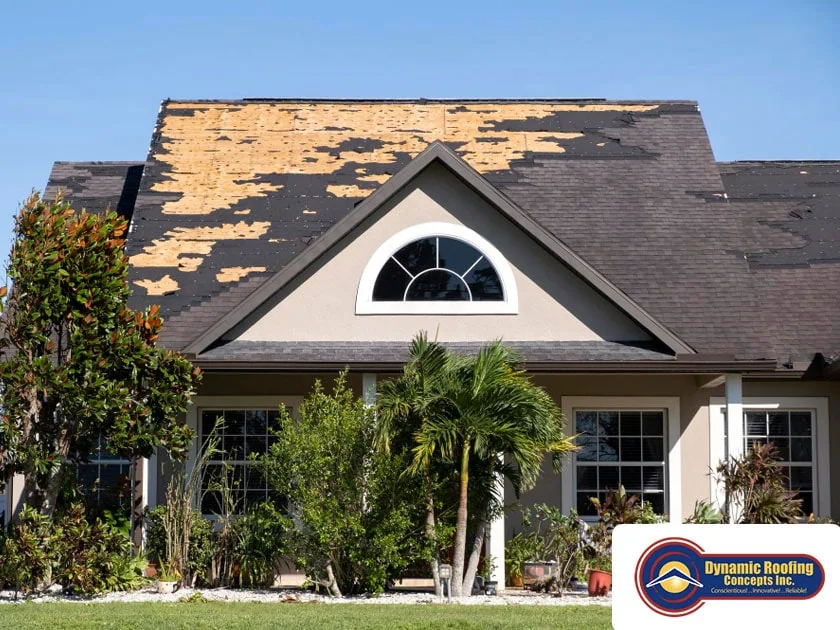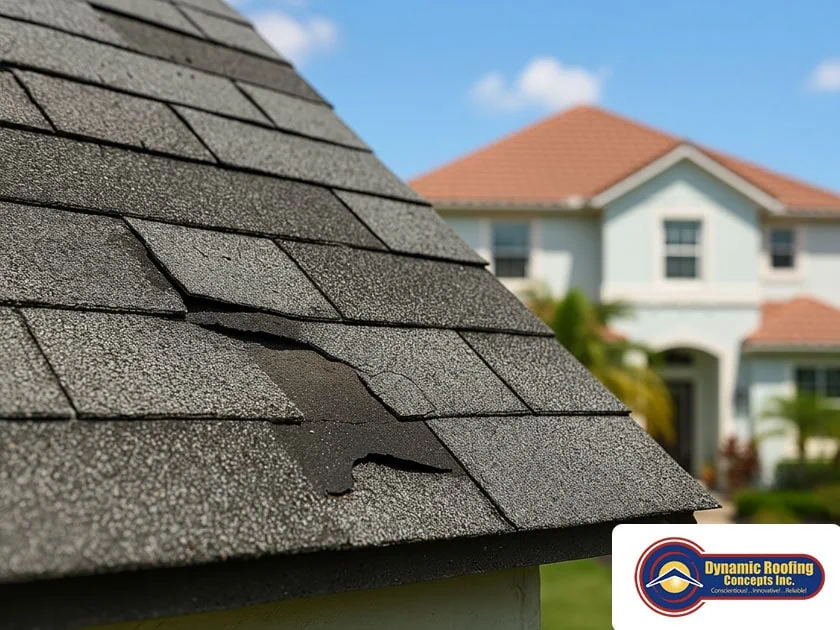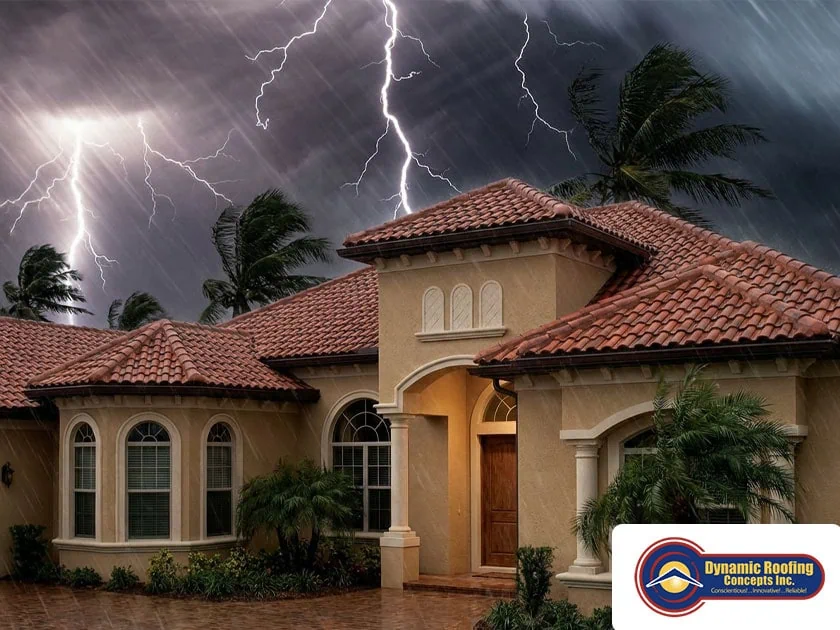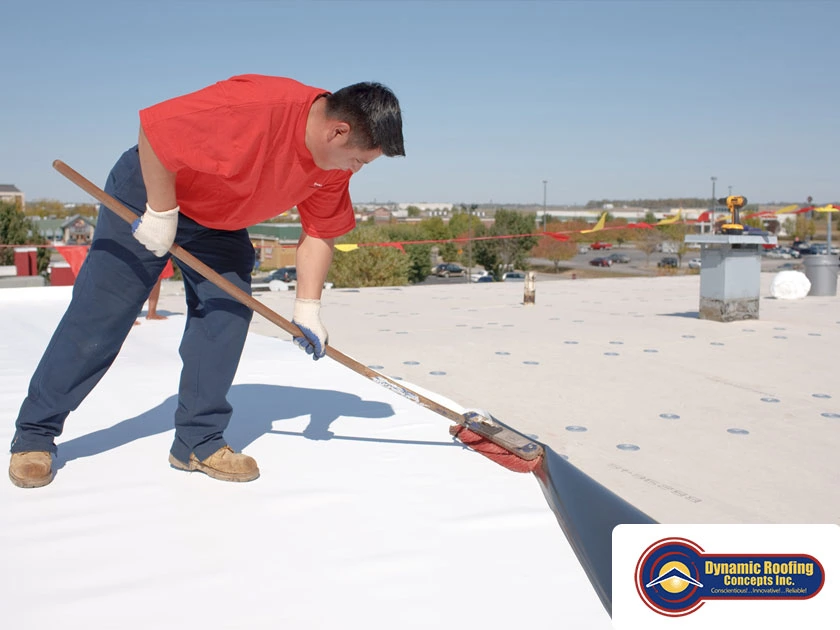

Share On:
When it comes to choosing the right roofing material in Florida, climate is everything. The Sunshine State is known for its intense heat, heavy rain, high humidity, and hurricane-force winds—all of which can take a toll on traditional roofing systems. That’s why more property owners across Brandon and Central Florida are switching to TPO roofing for their flat roofs. Known for its cost-effectiveness, UV reflectivity, and exceptional durability, TPO is one of the most popular solutions for energy-efficient, low-maintenance flat roofs in Florida.
If you're considering an upgrade, Dynamic Roofing Concepts Inc. offers expert TPO roofing installation tailored for Brandon’s unique climate and commercial roofing needs.
What Is TPO Roofing and What Is It Made Of?
Thermoplastic Polyolefin (TPO), sometimes also called Thermoplastic Olefin, is a type of single-ply membrane roofing that combines the benefits of various materials into one highly effective system. Despite the name, TPO roofing isn’t purely plastic—it's a polymer blend made from polypropylene, ethylene-propylene rubber, and reinforcing fillers like fiberglass, carbon, or a scrim layer. The scrim acts as a central reinforcement fabric that improves tear resistance, helps manage thermal expansion, and supports long-term flexibility—especially important for flat roof systems in storm-prone areas like Florida.
This blend gives the material excellent flexibility, ultraviolet (UV) resistance, and durability—critical traits for buildings in Florida’s extreme weather conditions. The single-ply format means it’s installed as one seamless layer over the roof deck, which helps reduce leaks and makes it easier to inspect and maintain.
Key Benefits of TPO Roofing for Florida Properties
TPO roofing is one of the most effective systems for withstanding Florida’s heat, humidity, high winds, and heavy rain. Known for its durability, energy efficiency, and low maintenance, TPO performs especially well on flat and low-slope roofs across Brandon and Central Florida.
Installed using heat-welded seams, reinforced membranes, commercial-grade adhesive, and modern fasteners, Thermoplastic Olefin provides long-term protection, meets Florida building code standards, and supports sustainable construction goals.
Cost-Effective
TPO roofs have a competitive price per square foot, making them an affordable choice for both new construction and roof replacement projects. When combined with their low maintenance needs, the long-term expense is often lower than other systems.
Durability & Resistance
TPO is designed to withstand ultraviolet radiation, chemical exposure, thermal expansion, and high wind uplift. It's resistant to mildew, mold, and algae, making it a reliable barrier against Florida's frequent storms and high humidity.
UV Reflectivity
TPO’s high solar reflectance reduces heat absorption and cooling loads—helping extend roof life by minimizing heat-related wear.
Energy Efficiency
TPO meets Energy Star® criteria and contributes to reduced carbon footprint. This helps mitigate the urban heat island effect while supporting energy savings throughout the year.
Flexibility
Thanks to its polyolefin-based structure and thermoplastic welding, TPO accommodates thermal expansion without cracking—a key advantage in Florida’s hot daytime temperatures and cooler nights.
Low Maintenance
TPO's smooth membrane surface resists buildup and is easy to clean with pressure washing. Its waterproof layer also helps prevent leaks and moisture damage.
Recyclable Material
TPO is an environmentally friendly choice, made with polymer materials that can be recycled at the end of the roof’s life. This aligns with sustainable construction and green building material goals.
See how energy-efficient roofing can benefit your Florida property.
How Long Does a TPO Roof Last?
A properly installed TPO membrane roof can last 20–30 years with regular inspections and proper care.
Key Factors That Affect TPO Roof System Lifespan
- Expert installation
- TPO is sealed at seams using hot-air welding (a machine blows hot air to melt the edges and bond them together into one solid, leak-proof layer)
- Certified installers like Dynamic Roofing Concepts use quality fasteners and flashing (edges around vents and skylights) to prevent leaks.
- Quality materials
- Premium membranes (like GAF EverGuard TPO) offer stronger performance and longer factory-backed warranties—up to 30 years on 80 mil thickness
- Regular TPO roof maintenance
- Small problems caught early—like debris buildup, sealant wear, or loosened fasteners—can be fixed quickly before they become big issues.
- Building and roof structure
- TPO works on plywood, concrete, or metal roofs. A solid roof deck and correct vapor barrier (a layer that stops moisture under the roof) help prevent rot, mold, and leaks.
Why This Matters in Brandon, FL
Brandon's weather—with intense heat, strong winds, and occasional hail—tests every roof. TPO is built to resist:
- UV sun damage
- Thermal expansion and contraction (roof materials expanding in the day’s heat, then contracting at night)
- Water infiltration during heavy rains
That makes it a smart, long-lasting option for both homes and business buildings.
Industry Terms
| Term | What It Means |
| Membrane | The single, flat sheet of roofing material (TPO in this case) |
| Mil | A thickness measurement—80 mil means the sheet is 0.080 inches thick |
| Hot-air welding | Using a heated tool to fuse TPO layers together at the seams, creating a waterproof joint |
Discover how commercial roof inspections help extend the life of TPO systems.
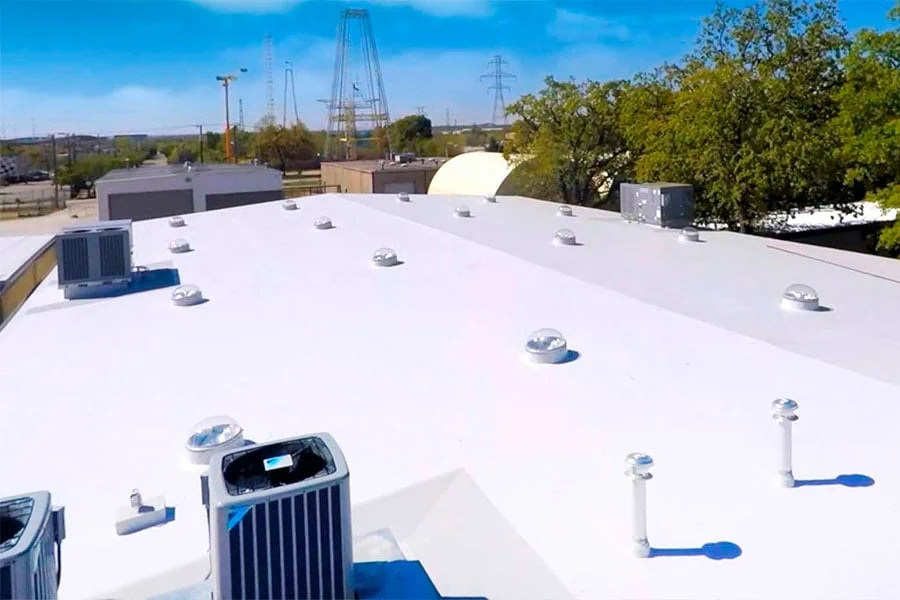
TPO Flat Roof vs. Shingles in Florida
Choosing between TPO and shingle roofing often depends on your building’s structure and intended performance goals.
- Flat Roof vs Pitched Roof: TPO is designed for flat and low-slope roofs, while shingles are ideal for steep-sloped residential homes.
- TPO for Commercial Buildings: Most commercial properties, warehouses, and industrial buildings in Florida benefit from TPO’s energy efficiency, reflectivity, and low maintenance. Its wide, white surface reduces energy costs and is compatible with solar panels, spray foam, or roof coating systems.
- Residential Considerations: For large, flat-roofed homes or mobile homes, TPO membrane roofs offer modern aesthetics and better weather resistance than shingles.
Explore shingle roof replacement services for pitched roofs here.
Are There Any Drawbacks to TPO Roofing?
Like any roofing material, TPO has some limitations:
- Early Manufacturing Issues: Older TPO systems had inconsistent quality, but leading brands like GAF TPO, Firestone TPO, and EverGuard TPO have since refined their manufacturing processes.
- Puncture Sensitivity: TPO membranes can be damaged by foot traffic or sharp objects unless protected by walk pads or coatings.
- Not for Extreme Cold: While ideal for Florida’s heat, TPO is not suited to freezing climates due to its thermoplastic nature.
Still, these issues are rare with modern TPO roofing systems installed by experienced professionals.
Learn more about our commercial roofing services and how we install TPO systems to last.
TPO Roofing FAQ
What is TPO in roofing?
TPO stands for thermoplastic olefin, a type of membrane roofing used on flat roofs and low-slope commercial buildings. It's a synthetic rubber material that combines the benefits of ethylene propylene rubber and polypropylene. Sometimes also called thermoplastic polyolefin, TPO roofing reflects sunlight, offers strong ultraviolet resistance, and is often rated by Energy Star for its efficiency.
What are the disadvantages of a TPO roof?
Some older TPO products had issues with seam failures, especially in areas exposed to extreme temperature swings or heavy foot traffic. Improper adhesive use or poor fastener placement can reduce warranty coverage. While modern TPO has improved, it may still be less puncture-resistant than PVC (polyvinyl chloride) or reinforced systems like bitumen.
Which is better, EPDM or TPO?
EPDM rubber is durable and flexible, especially in colder climates. TPO, on the other hand, has better reflectance, making it ideal for reducing cooling loads in hot regions. TPO also integrates well with building insulation and spray foam, while EPDM may resist ozone and chemical damage better. Your choice depends on thermal insulation needs, local climate, and roof substrate conditions.
How long does TPO roofing last?
A properly installed TPO membrane can last 20 to 30 years. Longevity depends on quality TPO installation, routine maintenance, and climate. A GAF TPO 60 mil system, for instance, can offer extended performance when paired with correct flashing, sealant, and roof coating.
How much does TPO roofing cost?
The cost of TPO roofing typically ranges from $5 to $10 per square foot installed. Pricing varies based on the deck material (e.g., plywood or concrete), insulation like polystyrene or fiberglass, and whether additional products like primer or vapor barrier are needed. TPO is often seen as an environmentally friendly investment for urban heat island mitigation and long-term roof performance.
Is TPO Right for Your Brandon Roof?
If you own a commercial, industrial, or large residential property in Florida, TPO roofing offers a high-performance, cost-efficient solution. Its ability to reflect sunlight, reduce air conditioning usage, and withstand Florida’s extreme weather makes it ideal for our region. Plus, with TPO, you're investing in a roof that supports sustainability, meets insurance expectations, and offers long-term value and warranty coverage.
Call Dynamic Roofing Concepts Inc. at (813) 657-7663 to schedule your free TPO consultation. Proudly serving Brandon, FL and surrounding Central Florida communities.

